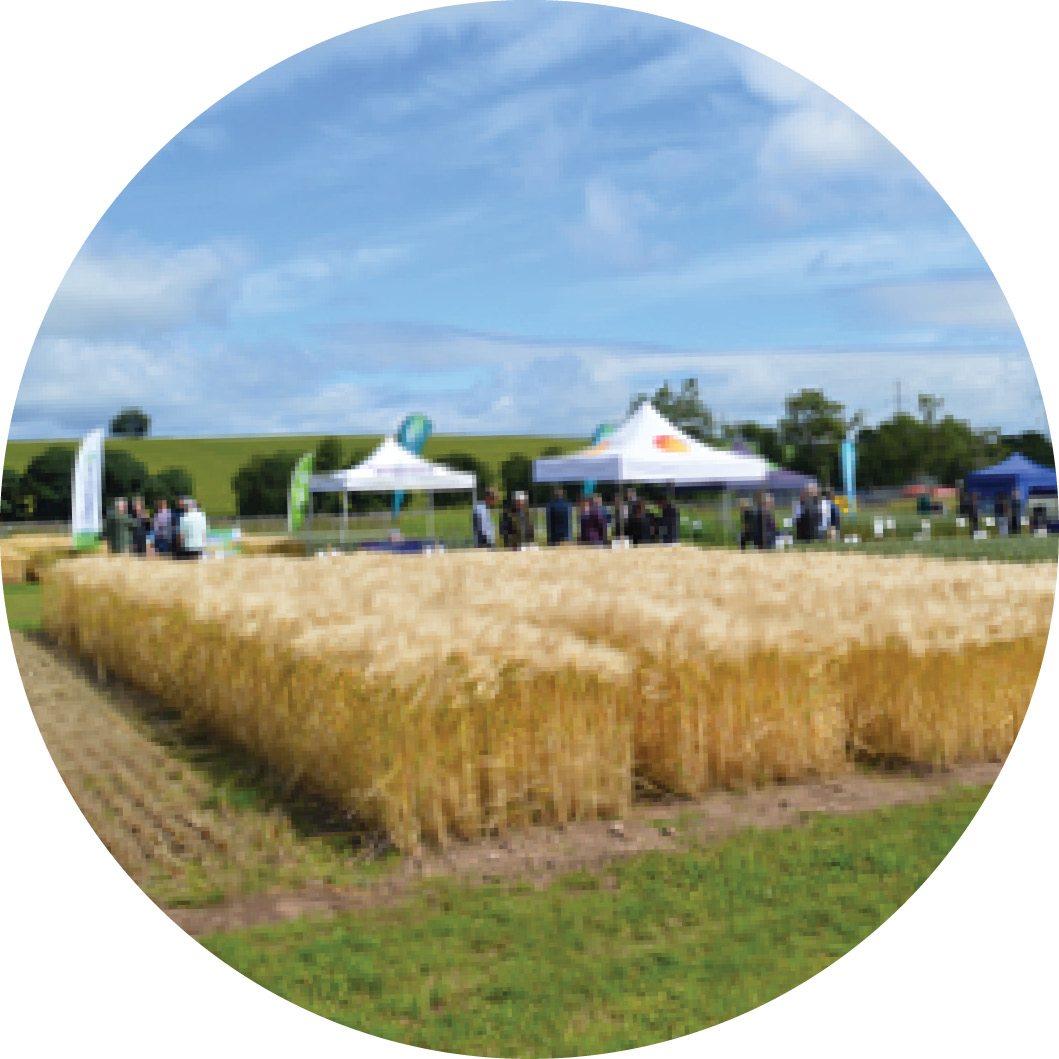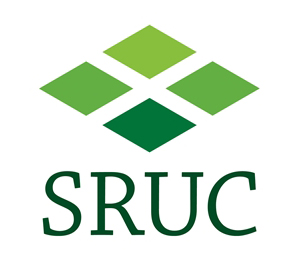Arable Futures
This free event is for anyone involved in the industry supply chain from growers right through to processors and to everyone interested in the sector, including those at early career stage.
Four interactive sessions will bring together people involved in arable supply chains, farming and ‘value addition’ to delve into the big questions:
What the future holds for the arable industry
Natural capital futures and benefit-risk sharing across the sector
What are the Future crops for climate resilience
Which Future skills will be needed in the arable sector
The first three sessions are geared towards the fourth session, with a final wrap up session to decide actions that can be taken - and assigned to interested parties in the room – to secure future sustainability and confidence. Pre-set overarching questions primed for the room, will be complemented by discussion points and questions submitted in advance and on the day.
The event aims to create an inclusive safe space for discussions about the future of the Scottish arable sector, reflecting the voices within and across generations. It will develop a shared understanding of what the future holds, challenge us to question how the sector responds, and identify actions that could be taken to create future resilience.
More information will be released shortly.
A recap of Arable Scotland 2024
‘Arable farming in a new era' is the theme of the 2024 Arable Scotland event, which took place on Tuesday 2nd July 2024 at The James Hutton Institute’s Balruddery Farm, near Dundee, DD2 5LJ.
We developed an exciting programme of exhibits, workshops, seminars and arable conversations aimed at bringing together the key players in arable production, from farmers to distillers and exporters, to discuss industry issues and demonstrate innovative and sustainable farming.
| 0800h | Press breakfast | ||||
| 0900h | Official welcome from David Webster, Chief Executive of LEAF UK | ||||
| 0915h | Workshops (see below) | ||||
| 1030h | Arable Conversation ‘Which practices will create resilience in Scottish arable farming?’ | ||||
| 1130h | Seminars (see below) | ||||
| 1300h | Workshops (see below) | ||||
| 1430h | Arable Conversation ‘Exploring the markets in Natural Capital’ | ||||
| 1530h | Centre for Sustainable Cropping tour (until 1700h) | ||||
| 1600h | Event close |
Plots, exhibits and working machinery demonstrations will be exhibited throughout the day.
A series of short workshops will be conducted in the morning and again in the afternoon focussing on: |
| |
Soil quality assessment: Emma Willis (AHDB Environmental Specialist) Emma will be discussing how to integrate soil biology, physics, and chemistry to assess soil quality as part of the AHDB soil health scorecard and giving further practical advice on how to improve and maintain soil health on farm. | ||
Maximising the benefits of integrated management practices: Prof Fiona Burnett (SRUC) and Dr Neal Evans (Voluntary Initiative) This interactive workshop really gets to the practical impacts of integrated pest management (IPM) and explores how they align with regenerative practices. By working through some key IPM actions the group will hear the available evidence and discuss and score options to reach a consensus on the most useful. The workshop will finish by pointing you at key resources to keep on with your IPM journey. | ||
Crop assessment in research trials: Sebastian Raubach (James Hutton Institute) Phenotypic data collection underpins large parts of crop research and breeding. High accuracy and efficient data collection are key to replace hand-written note taking. We will showcase a novel method of phenotypic trait data collection for crops using a free mobile application called GridScore. Outside of plot trials, GridScore can be utilised for various data collection purposes. You will get a chance to try the app yourself by scoring plant height of different barley Karma crosses using a barcoded measuring device. | ||
Recommended List varieties – plot tours: Mark Bollebakker (AHDB Field trials senior manager) Find out the latest from the AHDB Recommended Lists trials from the AHDB’s official trials inspector and validator for cereals and oilseeds. Mark will bring you up to date on variety performance for yield and quality, agronomic features and market options to identify promising varieties for your farm. |
Seminars will highlight novel research and findings on: | 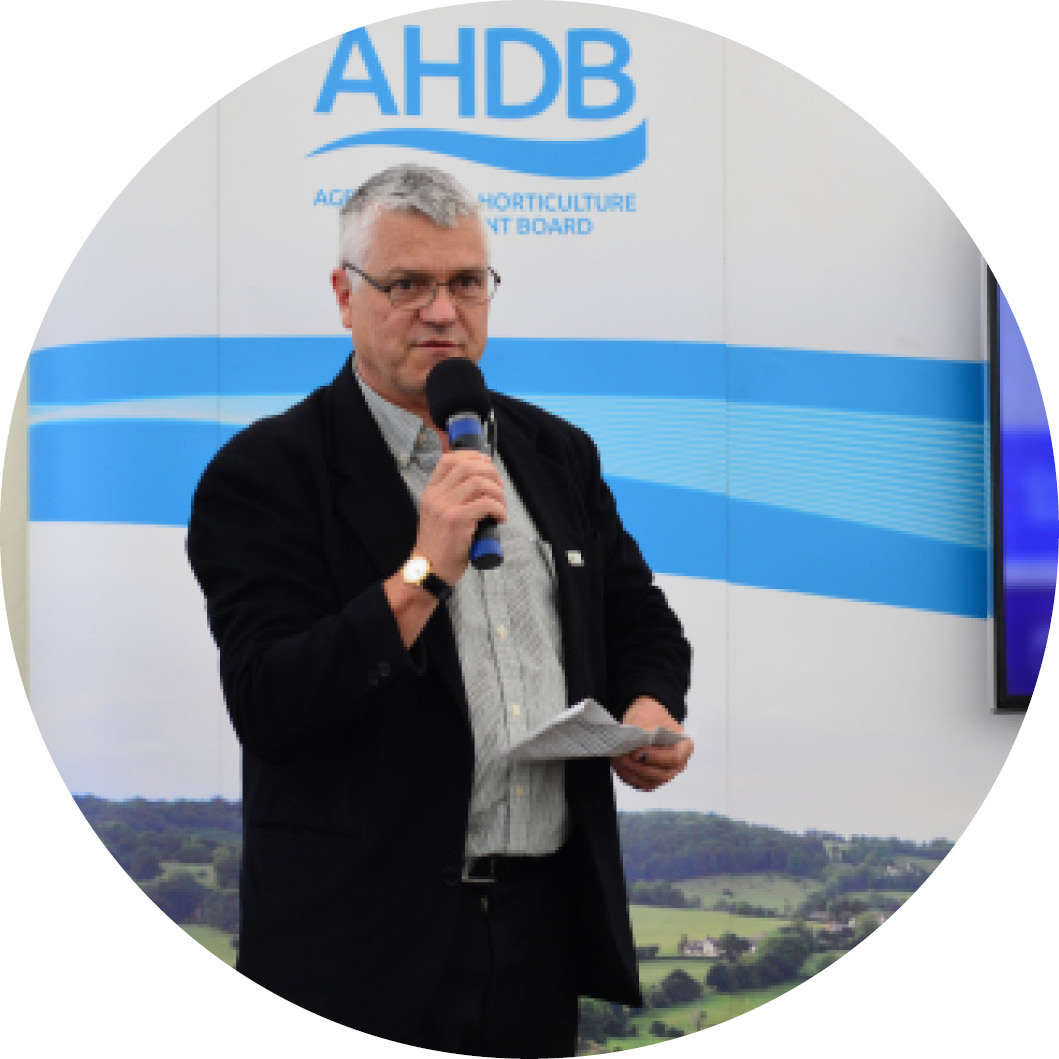 | |
Novel and minor crops – their potential in Scotland: Prof Derek Stewart (James Hutton Institute) As farming adapts to the changing climate and policy landscape, new crops and markets are opening up. Opportunities will be explored for expanding minor crops, such as legumes and oilseeds, and introducing new fibre (hemp, flax), food and medicinal crops, including a look at the infrastructure and market routes for these crops. | ||
Making soils resilient to extreme weather: Dr Kenneth Loades (James Hutton Institute) Soil resilience can be viewed simply as the soils ability to restore itself following a destabilising event. To achieve resilient soils however requires long-term management practices with no one fix solution to building soil resilience. With the wide range of soil types in Scotland, 25 major sub groups and over 1,000 individual types, there is no one management solution with a need for a balanced approach and range of options. | ||
The BARiTONE Barley Industrial Training Network: Prof Robbie Waugh (Director of the International Barley Hub) Find out how the International Barley Hub (IBH) is convening the world’s top scientists in barley to deliver step changes in barley research, production and use, and resilience across the supply and value chains. Prof Waugh will explain how the IBH is developing the next generation of barley scientists working at the research-industry interface through the BARiTONE Industrial Training Network PhD program. The seminar is accompanied by posters presented by BARiTONE PhD students. | ||
The benefits and constraints of incorporating grazing animals into a soil regenerative approach?’: (Frédéric Thomas, farmer in France). Frédéric is one of the founders of BASE-France and a pioneer of conservation agriculture. This session will help the audience to better understand the challenges of regenerative practices. |
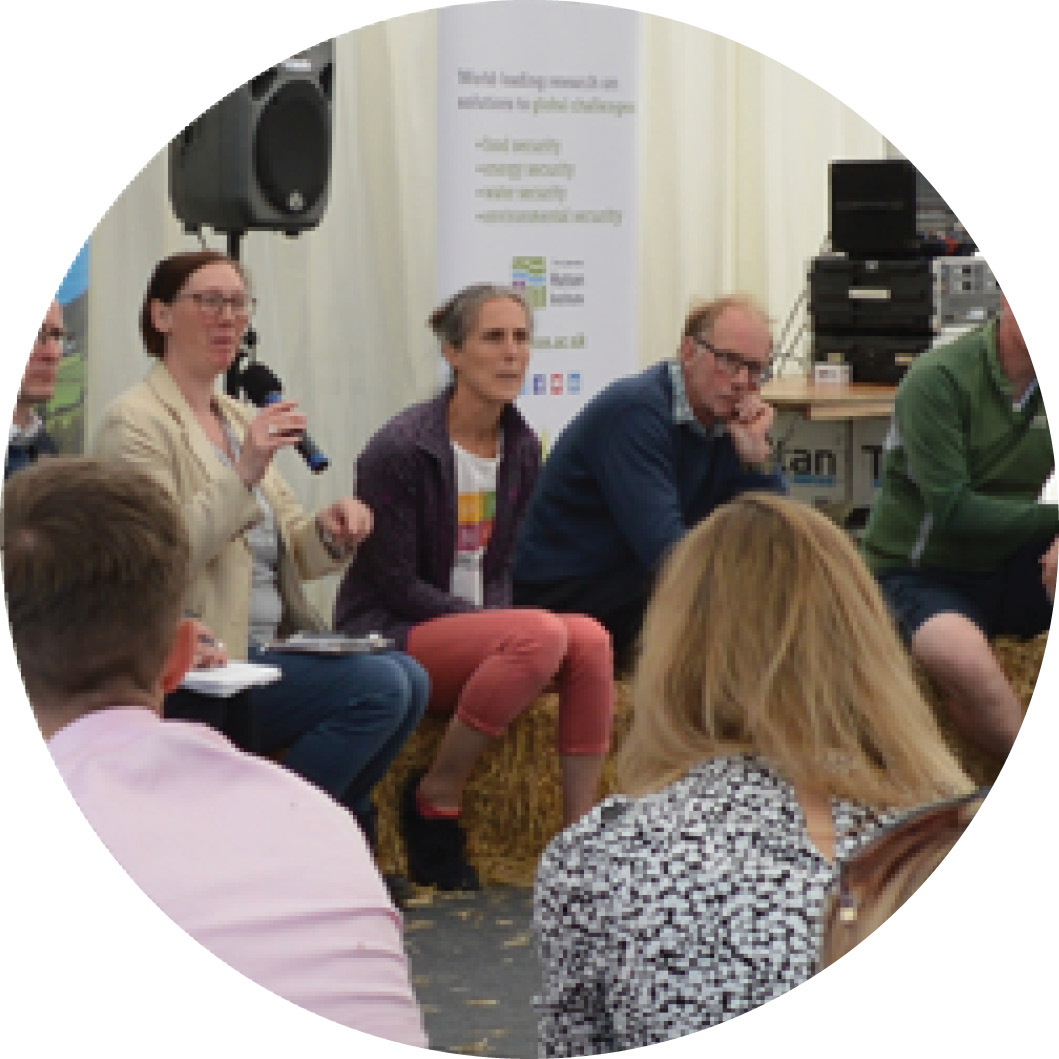 | Arable ConversationsWhich practices will create resilience in Scottish arable farming? (1030h) | ||
| Extreme weather conditions have continued to impact on the arable sector. What can farmers do to cope with excessive rain, drought and unpredictable temperatures to increase on farm resilience? Chaired by Elizabeth Massie, a farmer in East Lothian, and with a panel representing farmers and agronomists, this conversation will discuss soil and crop management practices that are starting to show benefits for coping with weather extremes and associated changes in pests and diseases. |
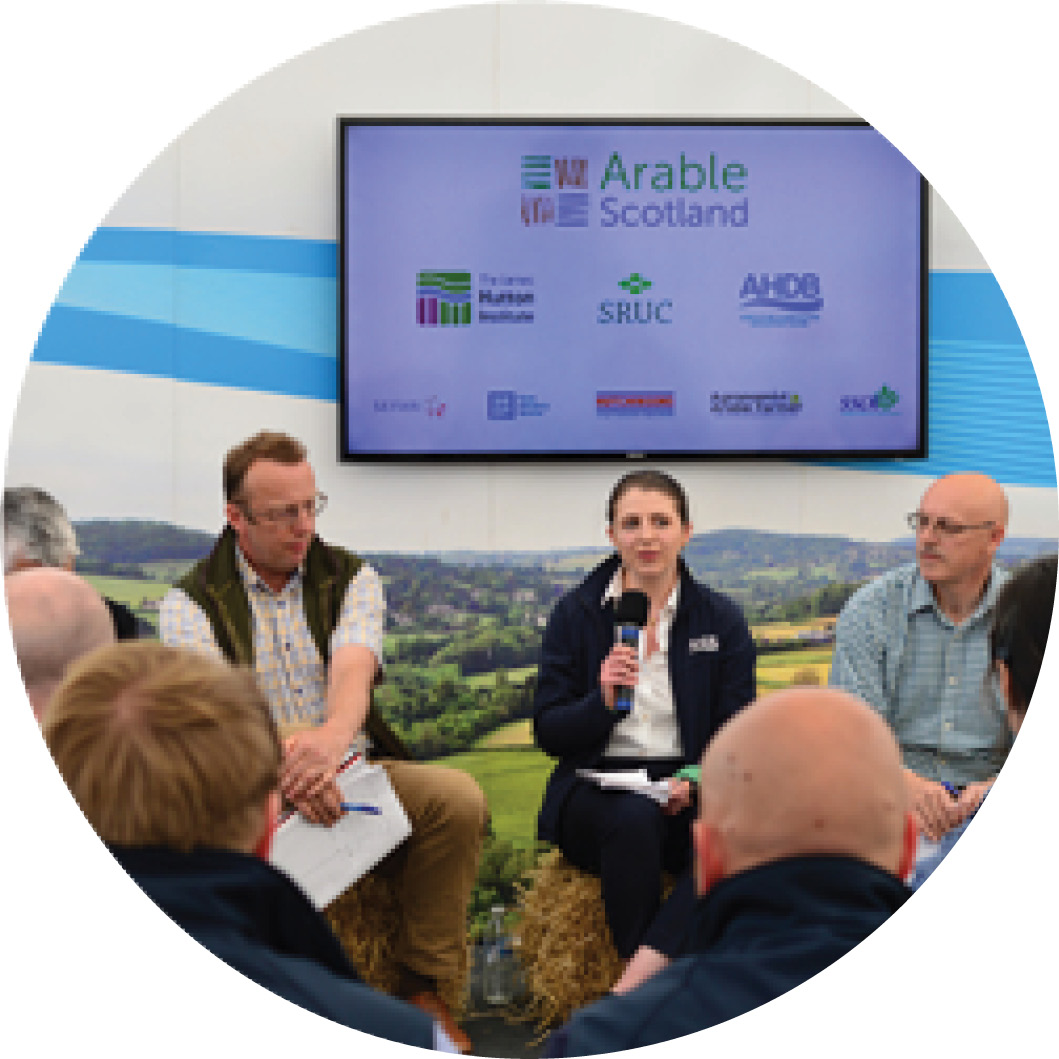 | Exploring the markets in Natural Capital (1430h) | ||
| Agriculture depends on nature – healthy soils, clean air and water, microbes, plant and animal life. The value of natural capital is, increasingly, being understood in the agricultural sector. To realise this value, however, it must be measured and monitored. Which methods can be used by farmers to quantify natural capital on their land? And how will they be rewarded for preserving and improving this natural capital? Chaired by Clive Mitchell (Nature Scot), this conversation explores the challenges and benefits of natural capital markets from the perspectives of farmers (SAC Consulting), advisers (Nature Scot), researchers (James Hutton Limited), and policy (Scottish Government), and aims to foresee how these markets might operate in the future. |
Press breakfast with:
Alison Karley (Agroecologist, The James Hutton Institute)
Adrian James (Knowledge exchange manager for cereals and oilseeds, AHDB)
Ken Loades (Soil Scientist, James Hutton Institute)
Antonia Boyce (Climate Innovation Hub Manager, James Hutton Limited)


